Knowledge Hub
Funding Guru is a business finance provider and adviser to UK firms looking for funding solutions to help them grow and remain financially strong.

Streamline Business Processes with Funding
Inefficiency is expensive. When processes take longer than they need to, not only will it disappoint your customers, but it

Nailing Your Unique Selling Point (USP): A Guide for SMEs
Learn how to define and use your unique selling point (USP) to stand out, attract customers & grow your SME with our practical step-by-step guide.
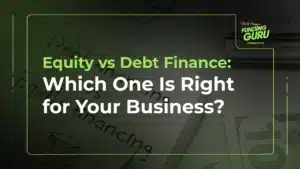
Equity Finance vs Debt Finance: Which One Is Right for Your Business?
Every growing business hits a point where funding becomes essential. Almost every scenario, even roaring success and rocketing sales, means
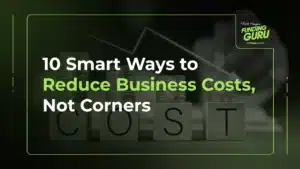
10 Smart Ways to Reduce Business Costs, Not Corners
Discover how to reduce cost in business with smart tips that save money and protect quality. Ideal for SMEs tackling inflation and cash flow issues.
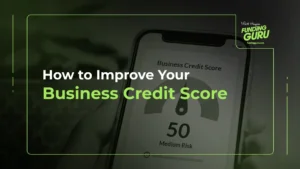
9 Ways to Improve Your Business Credit Score (2025)
Discover how to improve your business credit score in the UK with 9 practical steps to boost financial credibility and secure better funding options.
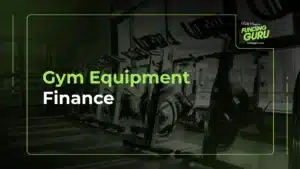
Gym Equipment Finance: Get Flexible Funding for Your Gym
Discover flexible gym equipment finance options with Funding Guru. Spread costs, boost cash flow, and grow your fitness business with ease.

Mezzanine Finance: UK Guide for Developers & Businesses
Discover how mezzanine finance works, its benefits, and how to use it for property development or business growth in the UK.

Funding Guru Glossary
Explore Funding Guru’s glossary for clear definitions of key financial terms related to business loans, property finance, and alternative funding.

Is Property Development Profitable in the UK? (2025 Guide)
Learn is property development profitable in the UK in 2025. Learn profit margins, costs & how the right finance can boost your returns.

Top 5 Benefits of Selective Invoice Financing for Small Businesses
Get the top 5 benefits of selective invoice financing including instant cash flow and its ability to support strategic growth initiatives. Learn more today!

Understanding the Risks and Rewards of Using Personal Assets as Collateral for Business Loans
Explore the implications of using personal assets for loans and investments. Understand the balance between risk and reward today!
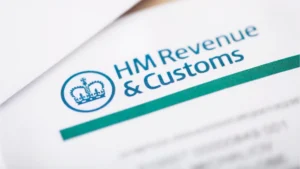
Unexpected Tax Bills? Best Solutions for UK Businesses
Facing an unexpected tax bill? Explore financing options, tax reduction strategies & prevention tips to protect your UK business from financial strain.

The Role of Technology in Modern Invoice Financing Solutions
Discover how Technology in Modern Invoice Financing Solutions is revolutionising cash flow management for businesses, making financing faster, easier, and more accessible.

Short-Term Loans for Taxes: Pros & Cons
Thinking of using short-term loans for tax payments? Explore the pros & cons to avoid pitfalls and make the right financial decision.

How to Integrate Invoice Financing into Your Business Operations Seamlessly
Learn how to integrate invoice financing effortlessly into your operations to improve cash flow, reduce risks, and scale your business with ease.
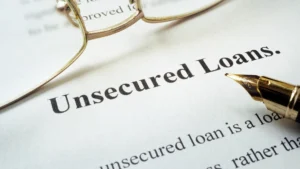
The Fastest Ways to Get Approved for an Unsecured Loan
Need a loan quickly? Explore the best ways to get approved for an unsecured loan fast. Follow these expert tips for quick approval and easy funding!

Does a Secured Loan Affect Your Credit Score? Find Out Now
Does a secured loan affect your credit score? Learn how it can boost or harm your rating and the best strategies for managing it.

Understanding VAT Deferral Options During Economic Downturns
Explore VAT deferral options to manage cash flow during economic downturns. Learn how to ease tax burdens and stay compliant. Read more now!

VAT Loans and Their Impact on Business Credit Scores
Learn how VAT loans affect business credit scores, their benefits, risks, and key factors to consider before applying.

Unsecured Loans for Debt Consolidation: Is It Worth It?
Learn the pros and cons of unsecured loans for debt consolidation, how they work, and if they’re the right solution for your financial needs.

How to Qualify for a Secured Loan: Requirements and Process
Learn how to qualify for a secured loan with our guide on key requirements and the step-by-step process to secure the funds you need.

Comparing VAT Loans vs Other Short-Term Financing Solutions
Learn the differences between VAT loans vs other short-term financing options to find the best solution for your business needs.

Understanding Prepayment Penalties in Commercial Mortgages
When you’re dealing with commercial mortgages, you’ll probably come across the term “prepayment penalty” at some point. It sounds complicated,

Top Challenges in Invoice Financing and How to Overcome Them
Managing cash flow is a constant challenge for businesses, particularly when waiting for customers to settle their invoices. Invoice financing

How Asset Finance Solutions Support Sustainable Business Practices
Find out how asset finance solutions can support sustainable business growth with affordable investments in green technologies.

How to Improve Your Chances for an Unsecured Business Loan
Learn the best strategies to improve your chances of getting an unsecured business loan and unlock growth opportunities for your business.

The Impact of VAT Loans on Long-Term Financial Planning
For many businesses, keeping up with VAT payments while balancing other financial responsibilities can feel like walking a tightrope. Meeting

The Pros and Cons of Fixed vs. Variable Interest Rates in Business Loans
Deciding between a fixed and variable interest rate is one of the first choices you will have to make when

Avoiding Common Mistakes When Applying for a Secured Business Loan
Getting the right funding is essential for any business. Whether you want to expand, buy new equipment, or manage cash

How to Secure a Commercial Mortgage with Low Down Payment Options
Securing a commercial mortgage can be a game-changer for your business, allowing you to purchase commercial property without having to
